Eritrea admits troops fighting in Tigray, says working with Ethiopia on pullout
Eritrea has acknowledged for the first time that its troops have been involved in a conflict in neighboring Ethiopia's northern Tigray region, where the soldiers stand accused of crimes against humanity.
Eritrea's UN ambassador Sophia Tesfamariam made the first explicit admission in a letter to the United Nations Security Council on Friday, saying that Asmara and Addis Ababa had agreed to begin withdrawal of Eritrean troops from the region.
“As the looming grave threat has been largely thwarted, Eritrea and Ethiopia have agreed — at the highest levels — to embark on the withdrawal of Eritrean forces.”
Asmara and Addis Ababa, she said, also agreed to “simultaneous redeployment of Ethiopian contingents along the international boundary.”
The announcement came weeks after reports revealed that Eritrean troops have committed “grave violations of human rights” in the Ethiopian region.
The Ethiopian Human Rights Commission (EHRC) said last month that Eritrean troops killed over 100 civilians in Tigray and committed atrocities that “may amount to crimes against humanity or war crimes.”
For months, both Ethiopia and Eritrea flatly denied involvement of Eritrean forces in the Tigray conflict, which was erupted in November last year.
The conflict erupted after Ethiopian Prime Minister Abiy Ahmed sent troops into the region as part of a retaliatory response to alleged attacks on the military. The dissident ruling party of the TPLF was overthrown.
Following revelations of atrocities, Abiy eventually acknowledged that Eritrean forces were fighting in his country, but said that they had come fearing they would be attacked by Tigray's regional fighters.
He also said that Eritrea has agreed to pull out its troops from the country’s border region.
But UN aid chief Mark Lowcock told the Security Council on Thursday that despite Abiy's earlier promise, there had been no evidence of a withdrawal of Eritrean troops from Tigray.
“Neither the UN nor any of the humanitarian agencies we work with have seen proof of Eritrean withdrawal,” he said.
He also said aid workers “continue to report new atrocities which they say are being committed by Eritrean Defense Forces.”
There were "widespread and corroborated reports of Eritrean culpability in massacres and killings,” he added.
The UN official also told the body that sexual violence was being used as a weapon of war, the humanitarian crisis has deteriorated in the past month and people were now dying of hunger in Tigray.
Lowcock said he had received a report of 150 people dying of hunger in one area of southern Tigray, calling it “a sign of what lies ahead if more action is not taken.”
Citing a local government official, Reuters reported that Eritrean soldiers opened fire in an Ethiopian town on Monday, killing at least nine civilians and wounding more than a dozen others.
In the letter to the 15-member council, Tesfamariam, however, dismissed reports of “the use of sexual violence and hunger as a weapon” as false allegations.

“The allegations of rape and other crimes lodged against Eritrean soldiers is not just outrageous, but also a vicious attack on the culture and history of our people,” he said.
In the meantime, Eritrea's information minister, Yemane Gebremeskel, said on Twitter Saturday that Asmara had summoned the UN's resident coordinator in Eritrea and the local head of the UN humanitarian coordination office to protest “wayward practices and fallacious reports... on basis of opaque networks/affiliations with TPLF.”
Yet Tigray residents have repeatedly accused Eritrean troops of mass rape and massacres, including in the towns of Axum and Dengolat.
Venezuelans will defend their independence in face of unlawful US moves: Iran FM
VIDEO | Millions of Afghans facing severe hunger amid aid cuts
Iran labels Royal Canadian Navy a ‘terrorist organization’ over IRGC designation
Palestine Action hunger strikers near death
VIDEO | Haibat al-Halbousi elected as speaker of Iraqi Parliament for four years
Assassination of Gen. Soleimani aimed at dismantling resistance security order: Iranian envoy
Extreme cold kills 25 Palestinians, including children, in Gaza in December
VIDEO | Press TV's news headlines


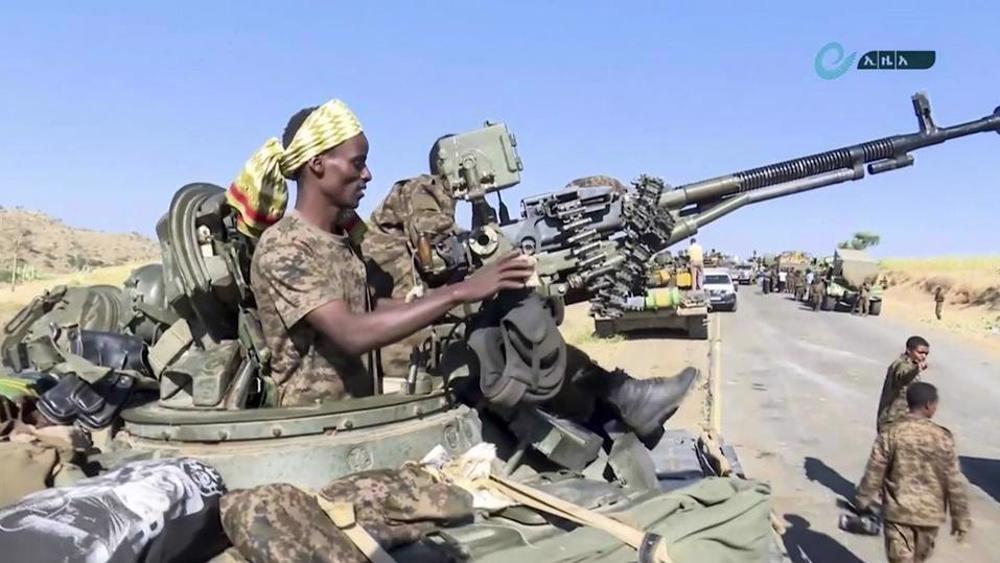
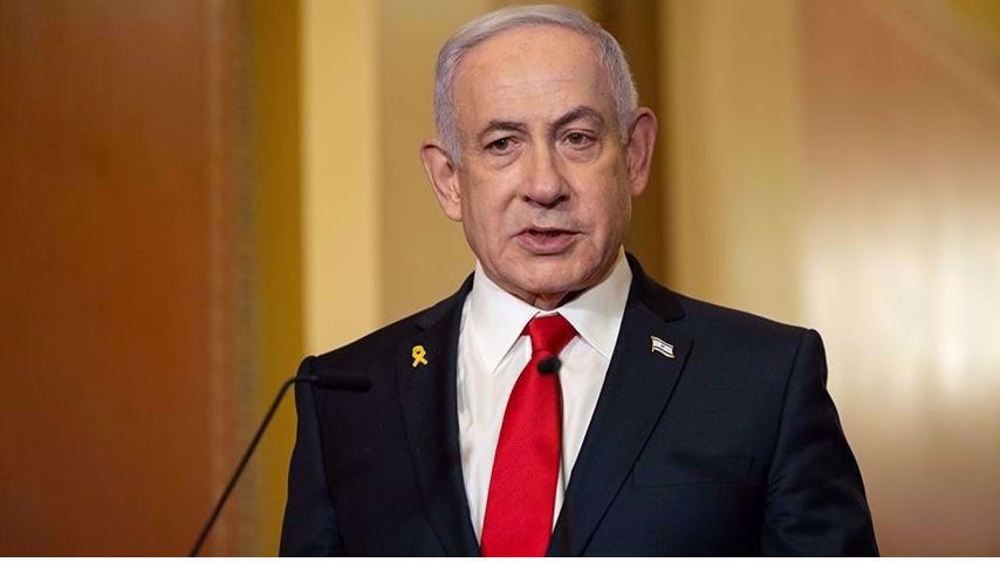
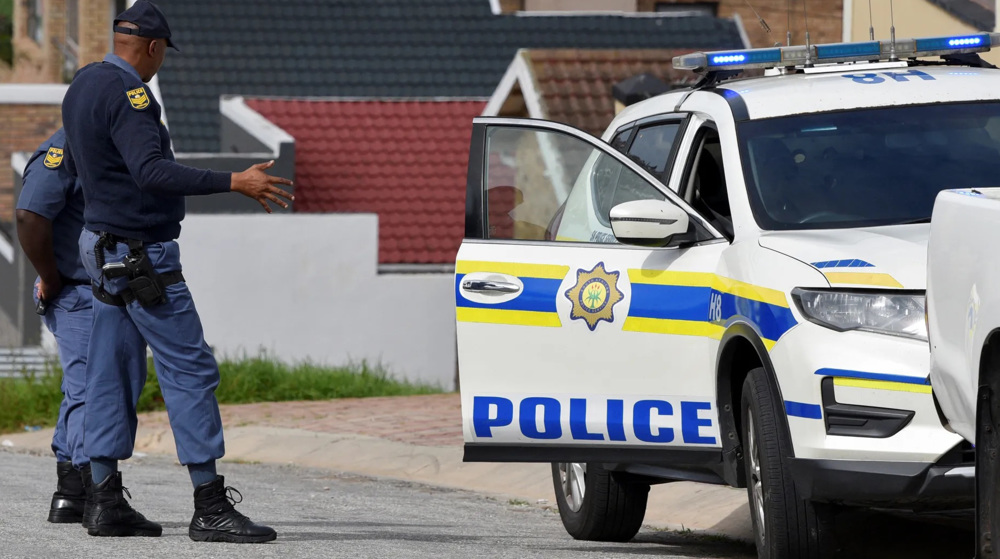




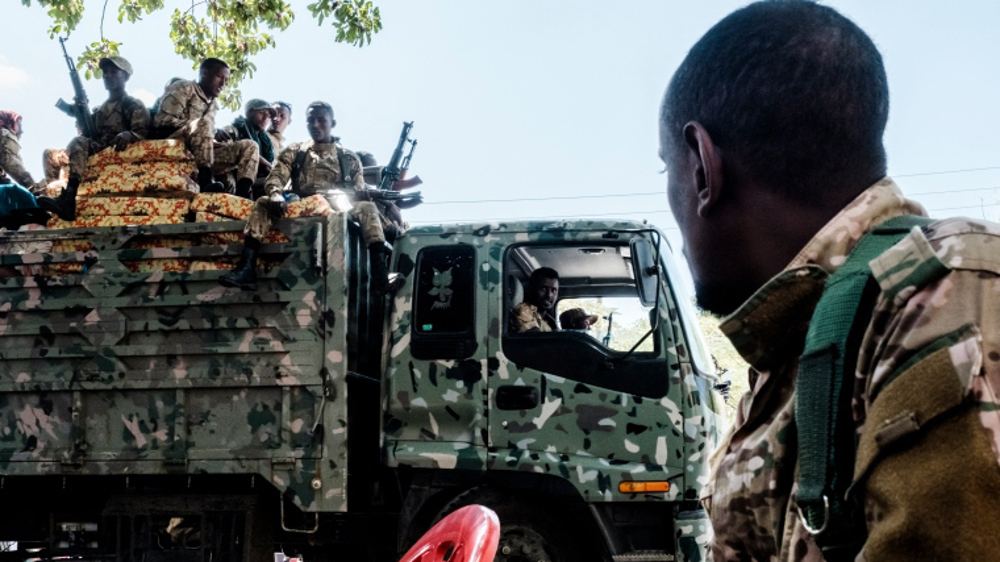
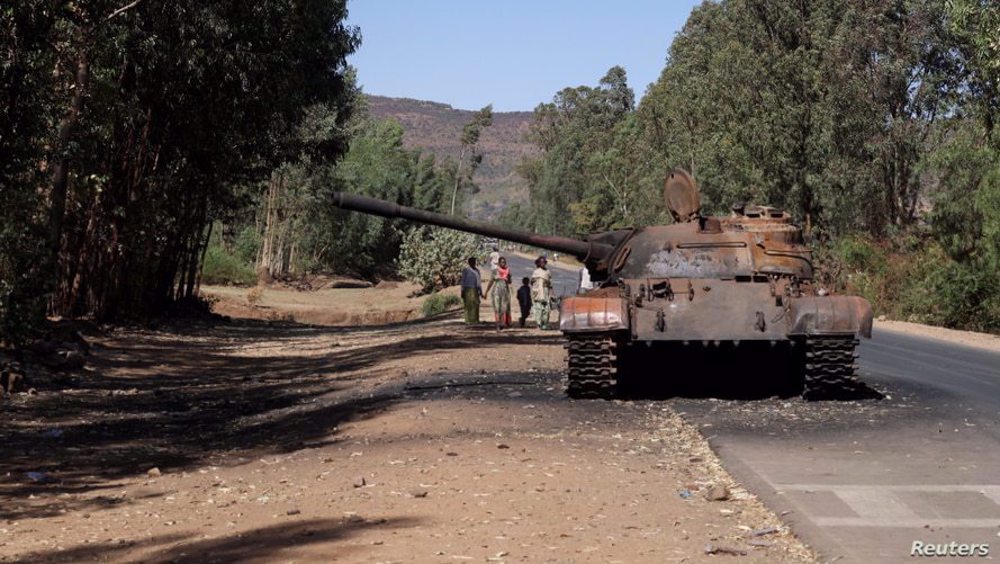


 This makes it easy to access the Press TV website
This makes it easy to access the Press TV website